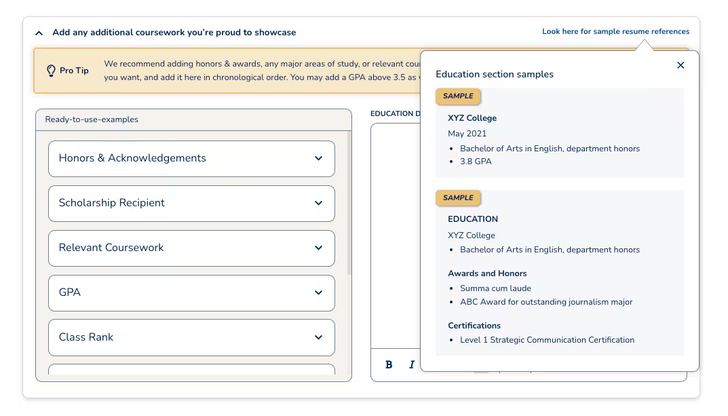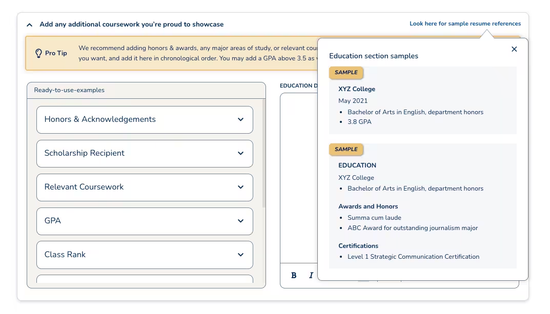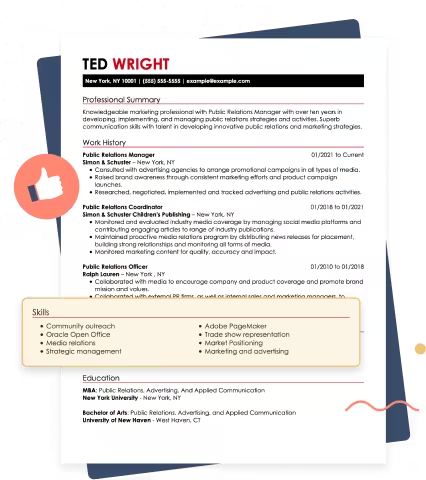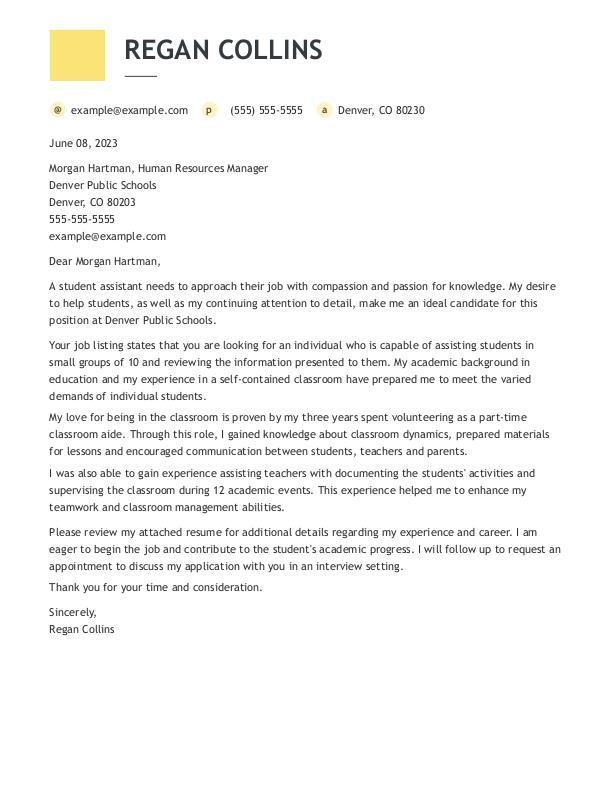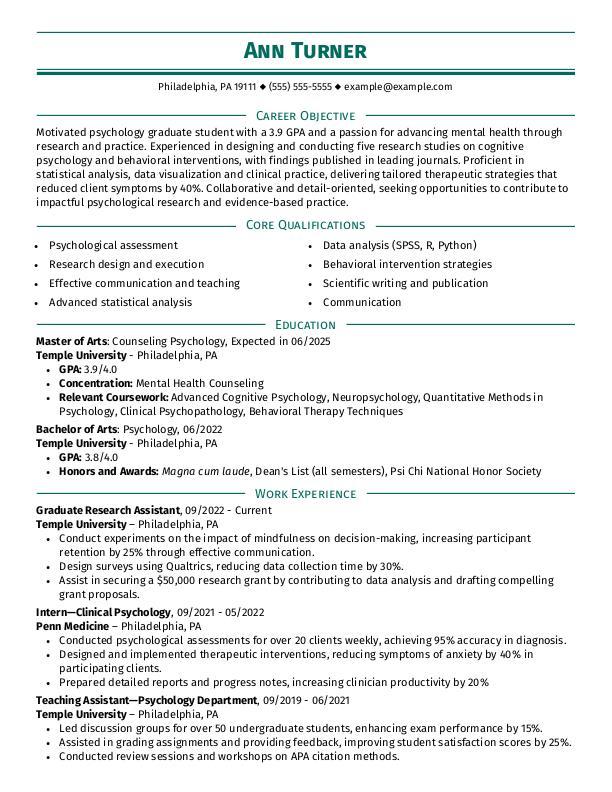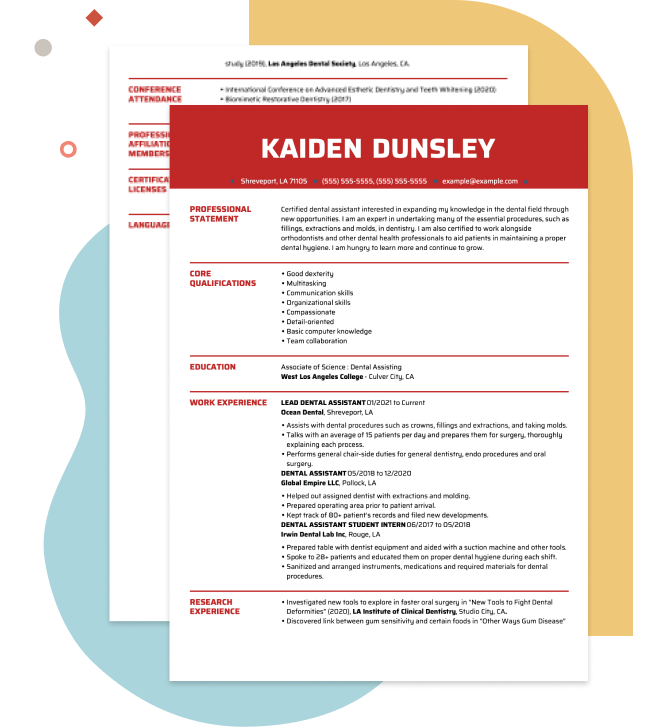How to List Relevant Coursework on a Resume With Examples & Tips

Our customers have been hired at: *Foot Note
According to the National Association of Colleges and Employers' 2025 Job Outlook survey, nearly 90% of employers seek evidence of a student's problem-solving skills — abilities often developed through coursework.
For students and career changers, showcasing relevant coursework in their resumes can be a smart way to bridge the experience gap. But how do you do it without overcrowding your resume?
This article will teach you how to list relevant coursework on a resume to enhance your application and ensure it grabs the hiring manager's attention.
How to Add Relevant Coursework to Your Resume (3 Ways)
Relevant coursework is typically added in the resume's education section. However, how you include the courses and how much information you provide depends on your goal.
Here are three ways to add your coursework to your education section:
In a short list
The most common way to list your coursework is to simply add a line below your academic entry titled "Relevant coursework" and write the name of each course.
This is an excellent way to keep your resume one page while spotlighting your theoretical knowledge.
Here's an example:
Bachelor of Science in Accounting
University of Southern California — Los Angeles, CA
06/2023
Relevant coursework: Financial Accounting, Managerial Accounting, Taxation, Auditing and Assurance Services
Bullet points
If you want to maximize readability so recruiters can quickly scan this section, opt for a bulleted list of your relevant coursework.
See how this nurse resume example showcases their coursework:
BA in Nursing
Florida International University — Miami, FL
06/2024
Relevant coursework:
- Nutrition
- Pharmacology
- Pathophysiology
- Microbiology
- Bioethics
- Professional Nursing Management
Check out our vast resume examples to see how others highlight their coursework and format other essential resume sections.
Brief description
The third way to list your relevant coursework is to write the course title with a short description.
Recent graduates with little experience particularly benefit from this alternative because they can frame the description to show how it helped them acquire the skills needed for the role.
See how this marketing student resume frames coursework for a social media manager role:
Bachelor of Arts in Marketing
Boston University — Boston, MA
06/2024
Relevant coursework:
- Digital marketing strategies: Learned about audience targeting, content strategy, and analytics through online marketing techniques, including social media marketing, SEO, email campaigns, and paid advertising.
- Consumer behavior: Explored psychological and social factors that influence purchasing decisions to craft campaigns that resonate with target demographics.
- Content creation and brand storytelling: Gained first-hand experience developing compelling visuals, videos, and written content tailored for digital platforms, emphasizing brand voice, storytelling techniques, and multimedia content strategies.
When to Include Relevant Coursework
Hiring managers will always look at work experience first. However, especially with entry-level positions, they know some applicants may not have much experience to show.
That's where relevant coursework comes in.
Professionals changing careers or recent graduates can significantly improve their chances of passing the first round of screenings if they include coursework that offsets their lack of experience.
The key is relevancy. Only include courses that prove you have the tools to perform the job role; anything else takes up unnecessary space.
So, only include relevant coursework if:
- You're a student or recent graduate.
- You're applying for an internship.
- You're changing careers.
- The job description explicitly asks for coursework to be included.
As a rule of thumb, avoid including coursework if you already have more than two years of experience.
Relevant Coursework Resume Examples
Use these relevant coursework examples to gather ideas for when you create your resume:
Entry-level surgeon
Marketing graduate
Entry-level social media manager
Tips to Include Relevant Coursework on Your Resume
Follow these tips to ensure your relevant coursework takes center stage and shows hiring managers your suitability for the role:
- Use keywords: A sure-fire way to convince recruiters you have the tools to do the job is to include keywords from the job description. Plus, it will increase your chances of passing ATS.
- Add academic projects: Consider including research papers, publications, or a thesis to further demonstrate your expertise.
- Adjust the course names if necessary: Course titles vary across universities. If the name doesn't accurately describe what you learned, tweak it.
- Include your GPA: If you're fresh out of college, showing off your impressive GPA can boost your resume.
- Double-check for mistakes: This applies to the rest of your resume. Always re-read your document to ensure there are no spelling or grammatical errors.
Key Takeaways
- Adding relevant coursework to your little-to-no-experience resume helps to highlight your skills and expertise while balancing the lack of experience.
- Your coursework should always live in your educational background, below each academic entry.
- There are three ways to list your relevant coursework: in a short list, with bullet points or a course title followed by a brief description.
- Only include coursework directly relevant to the role you're applying for and if it's necessary to showcase your fit.
- Include keywords from the job description to tailor your resume further and increase your chances of passing ATS.
FAQ
How do you describe relevant coursework on a resume?
When describing relevant coursework, focus on what you learned and the hard or technical skills you earned. Here’s an example:
Bachelor of Science in Software Engineering
Stanford University — Stanford, CA
06/2023
Relevant coursework:
- Data structures and algorithms: Expanded theoretical programming concepts such as arrays, linked lists, trees, and sorting/searching algorithms to hone in on code writing.
- Software development lifecycle (SDLC): Learned software design, development, testing, deployment, and maintenance processes to work with Agile, Scrum, or DevOps environments.
- Database management systems (DBMS): Gained first-hand experience designing, querying, and managing databases using SQL and NoSQL technologies.
When should I remove relevant coursework from my resume?
If you have over two years of experience in the field or have already earned the necessary skills, you can remove your coursework and focus on expanding other resume sections.
Should I include relevant coursework in my cover letter?
A cover letter can be a great tool for further expanding on your expertise and qualifications. If you have limited experience but vast theoretical knowledge from college courses, discussing how these prepared you for the role in your cover letter can do wonders for your chances of getting an interview.
Our customers have been hired at:*Foot Note
